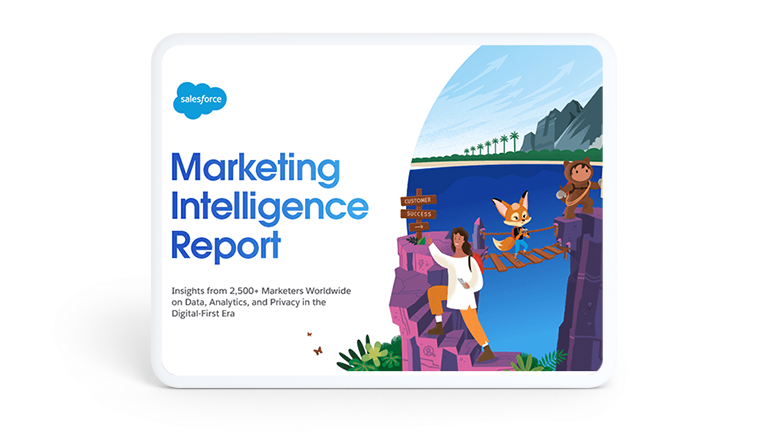Europe’s landmark GDPR law placed stringent restrictions on how companies used data, prompting big changes in how marketers source and manage data. California quickly followed suit. And in May 2022, the UAE Data Privacy Law set out stringent guidelines around active and meaningful consent as a requirement for processing personal data.
These new data privacy laws are having a profound effect on marketing data use, personalisation and measurement. And that’s a big challenge for marketers, who rely on data to fuel the highly relevant experiences customers expect, like personalised content offers and seamless digital experiences.
But it’s not just the customer-facing aspect affecting marketers either. Internally, these data regulations may impact how marketing teams optimise campaigns, generate and score leads, and segment and target markets – as well as how they prove their campaigns deliver pipeline.
According to our latest Marketing Intelligence Report – surveying 2,500 marketers – 55% have adjusted their personalisation strategies, and a whopping 90% agree that data privacy changes have fundamentally changed how they measure performance.
Data privacy makes personalisation more complicated
The new UAE law will be particularly challenging for marketers in a region where customers have sky-high expectations and expect luxury experiences, even online.
Marketers already impacted by similar laws in Europe are pivoting to a consumer-first, consent-based approach to collecting data. They’re focusing more on earning and maintaining trust, by putting customer needs first, by being transparent about how they use data, and by being clear about how this benefits customers.
Supporting this is Muge Fazlioglu, Ph.D., a research professional for the International Association of Privacy Professionals. Fazlioglu advises companies to find a way to inform users about how they’ll use their data. But on top of this, marketers will need to manage their data systems to make sure they follow the parameters their customers agreed to.
The impact of data privacy on marketing performance measurement
Marketing-generated pipeline is the second highest metric defining success for businesses in the UAE. Yet 88% of marketers in the region agree that the recent data privacy changes have fundamentally changed how they measure performance.
And – you’ve guessed it – limiting what data marketers collect will make it harder to measure that pipeline.
So, what are marketers doing to counteract this?
Well, the people we polled are realigning marketing performance KPIs and goals, and reallocating budget.
Let’s dig into this in more detail.
How marketers are adjusting to data privacy challenges
As ever, marketers aren’t standing still in the face of change.
And in the UAE, marketers are changing the way they spend to overcome this new challenge. Over half (58%) are increasing investments in marketing analytics and reporting, 60% in their customer data platform, and 50% in real-time interactions and personalisation.
Some marketers are handling data privacy challenges by moving their budget to contextual advertising, in which ad displays are based on relevant content, rather than a user’s profile.
And, ultimately, many are putting a greater emphasis on creating high-value content as a method for earning trust and consent.
Top tips:
If you don’t already, use clear language to inform customers how you’ll use their data.
Create and give away high-value content that encourages customers to share data.
Put customers first – don’t give them a reason to retract consent.
Marketing in a time of change
The new law will challenge all marketing functions, but marketers will adjust and find new ways to succeed – just like we always do.
Now, find out what your peers in the UAE – and around the world – are doing in the latest Marketing Intelligence Report.
You’ll get access to insights from 2,500 marketers on topics like:
How marketers define their roles in the digital-first era.
The challenges behind cross-channel marketing.
How they're adapting to a privacy-focused data ecosystem.
The role of data in marketing-led growth and customer experiences.




